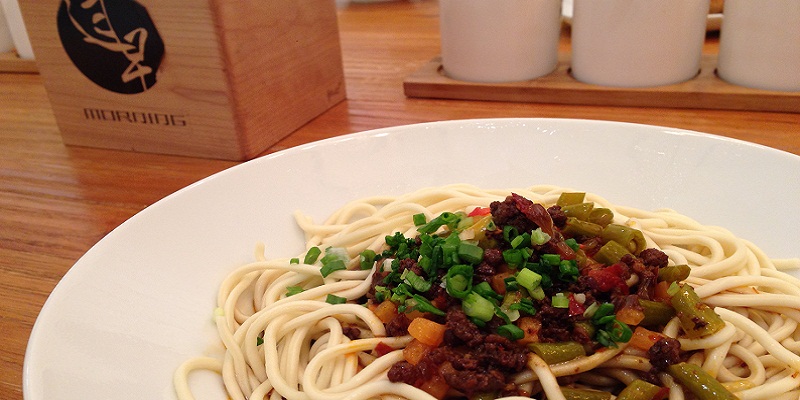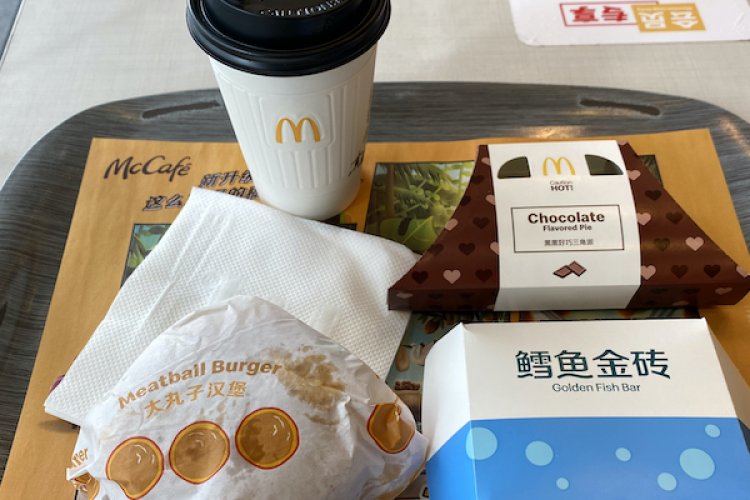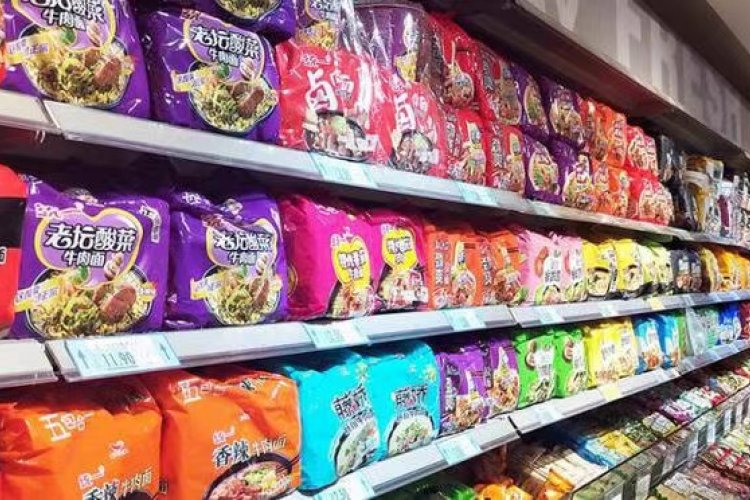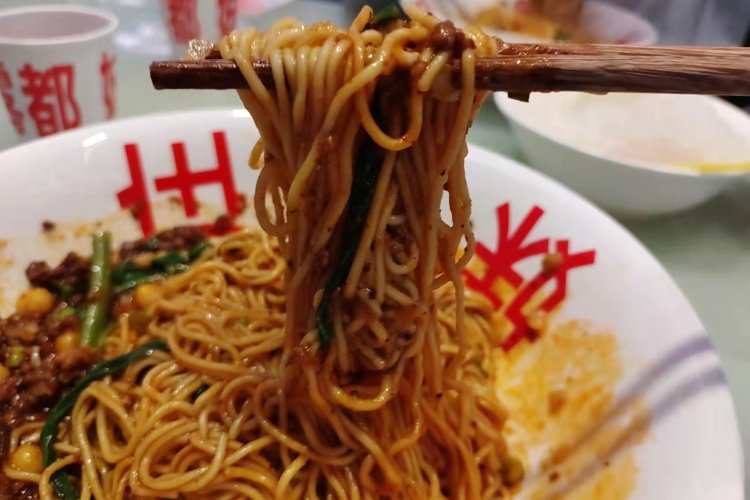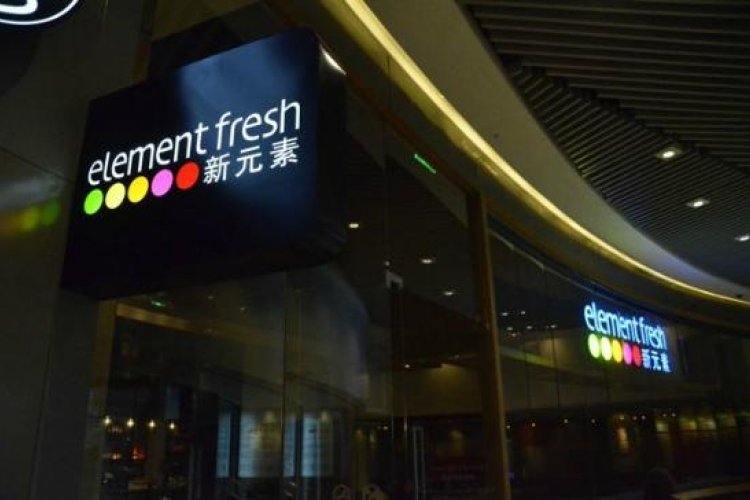Get Your 'Morning' Fix of Wuhan Hot and Dry Noodles in Dongzhimen
In Wuhan dialect, guò zǎo (过早) means to have breakfast. This particular Dongzhimen noodle shop, Morning (过早), named after that favorite of Chinese pastimes, has received growing attention online after being recommended by famous Chinese actor Chen Kun on Weibo, saying: “The noodles are delicious, the owner is handsome, and the shop is cozy. Put it on your list. You’re welcome,” quickly receiving 26,173 likes and 4,328 reposts.
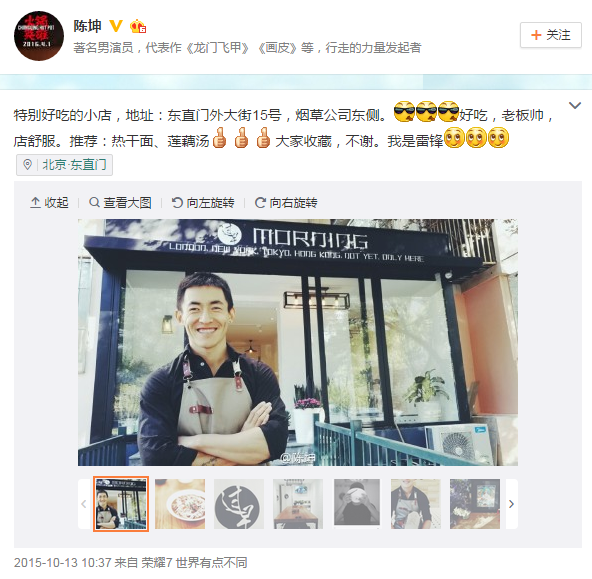
I ended up visiting twice, on the same day. At around 2pm, upon entering the restaurant, I was immediately informed by one of the staff, who was busy frying up something in a one-meter-wide pan, that they were out of sauce and that I should return later. So, unable to get my fill, I dutifully returned at around 6pm.
There are two types of noodles on offer: traditional hot and dry, or submerged in soup, and offered in three flavors: original (原味, RMB 20), with extra sauce (炸酱), or with beef sauce (牛肉酱). Sides include lotus root soup (藕汤, RMB 15), “eggnog” or egg in Laozao rice wine (蛋酒, RMB 5), and a selection of pot-stewed snacks (卤味).
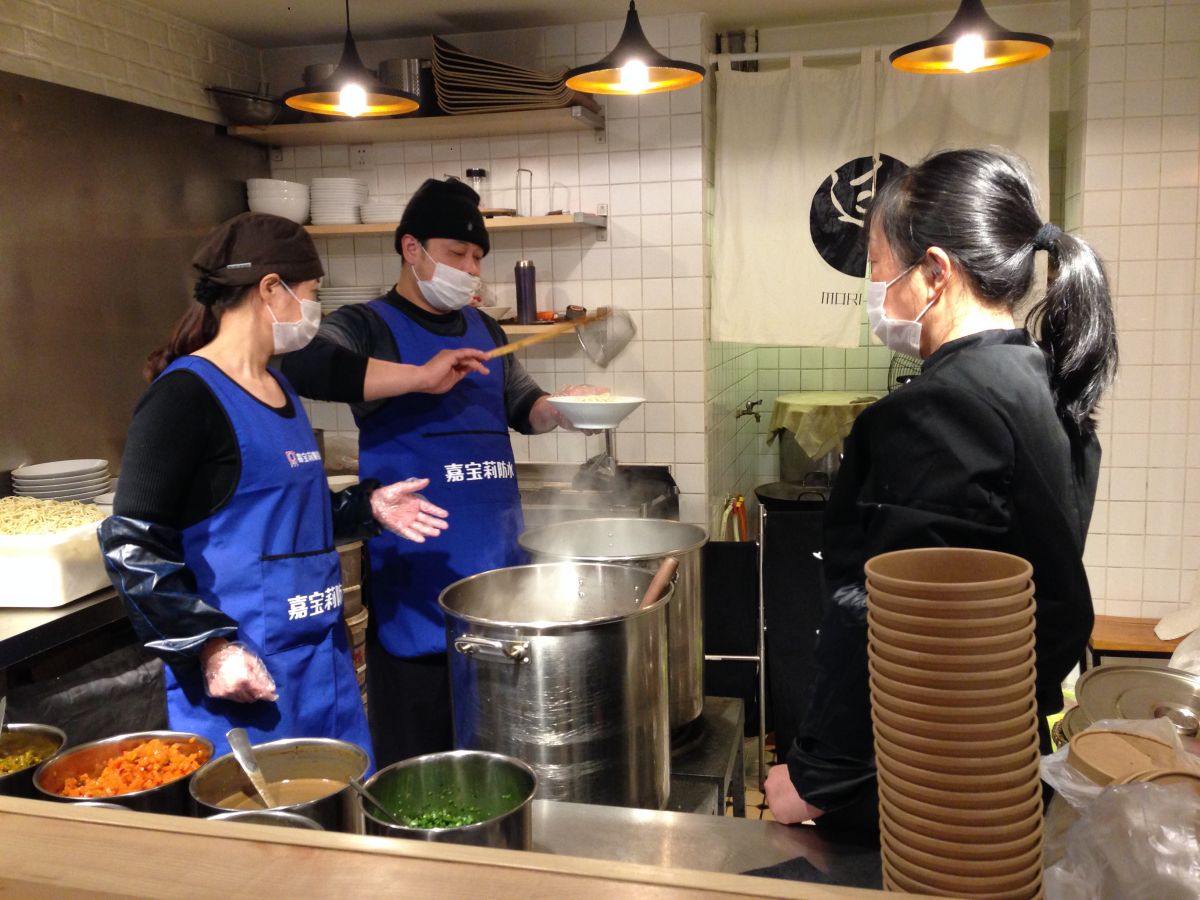
Seating involves only one oversized wooden table, which can seated 14 people, communal style. The white brick walls and bright lights reminded me of another of our faithful noodle spot, Bei 27 Hao. The majority of other customers during my visit had made the trip alone, and many of them from Hubei, coming to test this rendition of their local dish. I ordered the original hot and dry noodles, which are served with a helping of beans and chopped radish. The sauce is particularly thick, and the noodles get so dry that you either have to use the eggnog or lotus root soup to wash them down them. “All the lotus roots we use are from my hometown, Honghu Lake,” the chef said proudly, offering to stir the noodles for one of the bemused customers. According to the owner, they will move to 10 Chunxiu Lu on May 1, opting for a venue with more space.
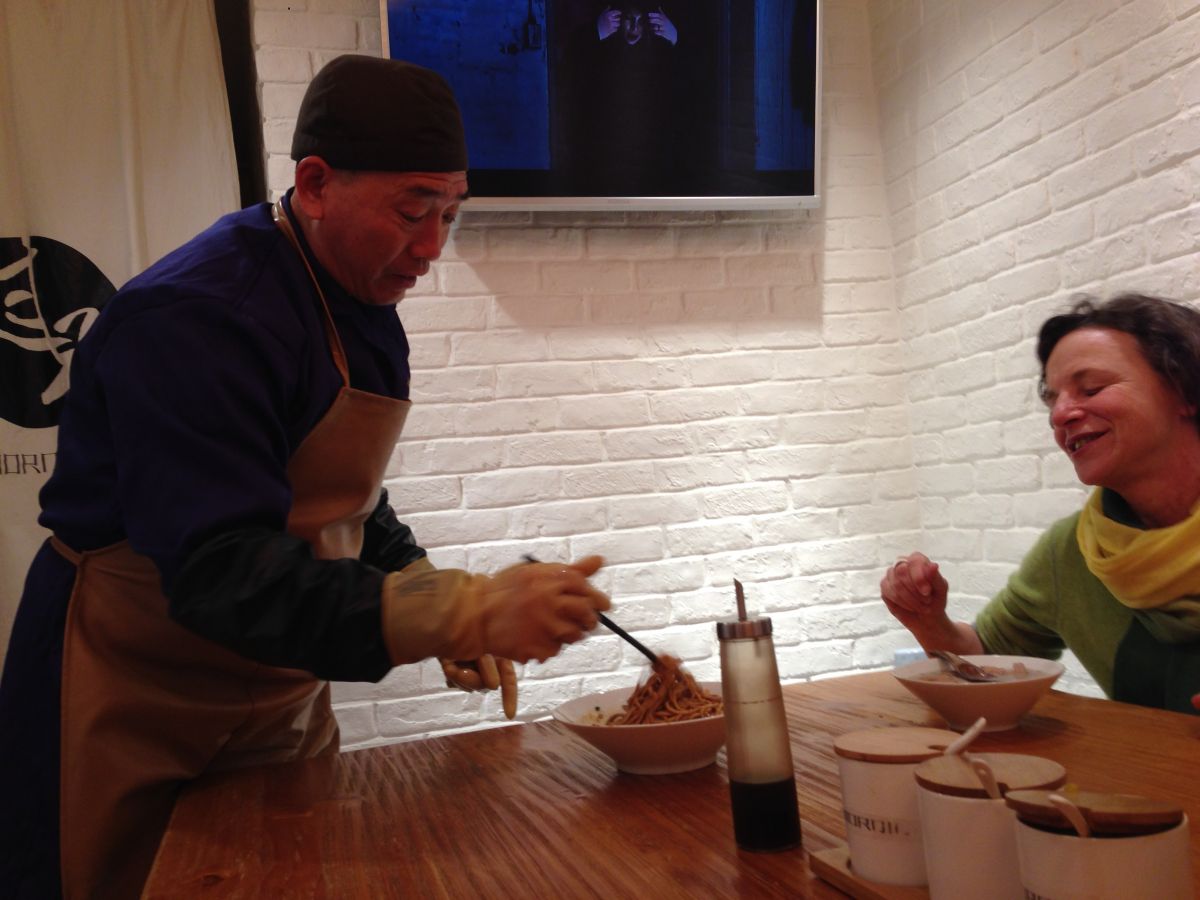
More on hot dry noodles
According to Wikipedia, hot dry noodles (热干面, règānmiàn) are a traditional Wuhan dish, the capital of the Hubei province in central China. Reganmian has a 80-year history in Chinese food culture and is a typical breakfast food in Wuhan, often sold from street carts from early morning until midnight.
The finished hot and dry noodles are firm and chewy, golden and oily, savory and fresh. The type of noodles are called jianmian (碱面) and are mixed with various sauces and dried vegetables.
In 2013, the Chinese Ministry of Culture released a list of the top 10 kinds of noodles in China. Wuhan hot noodles came out on top, followed by Beijing noodles, Shanxi sliced noodles, and Henan Xiaoji stewed noodles. If you want to know more, watch this informative video from CNTV or head to Morning to get a taste of the real deal.
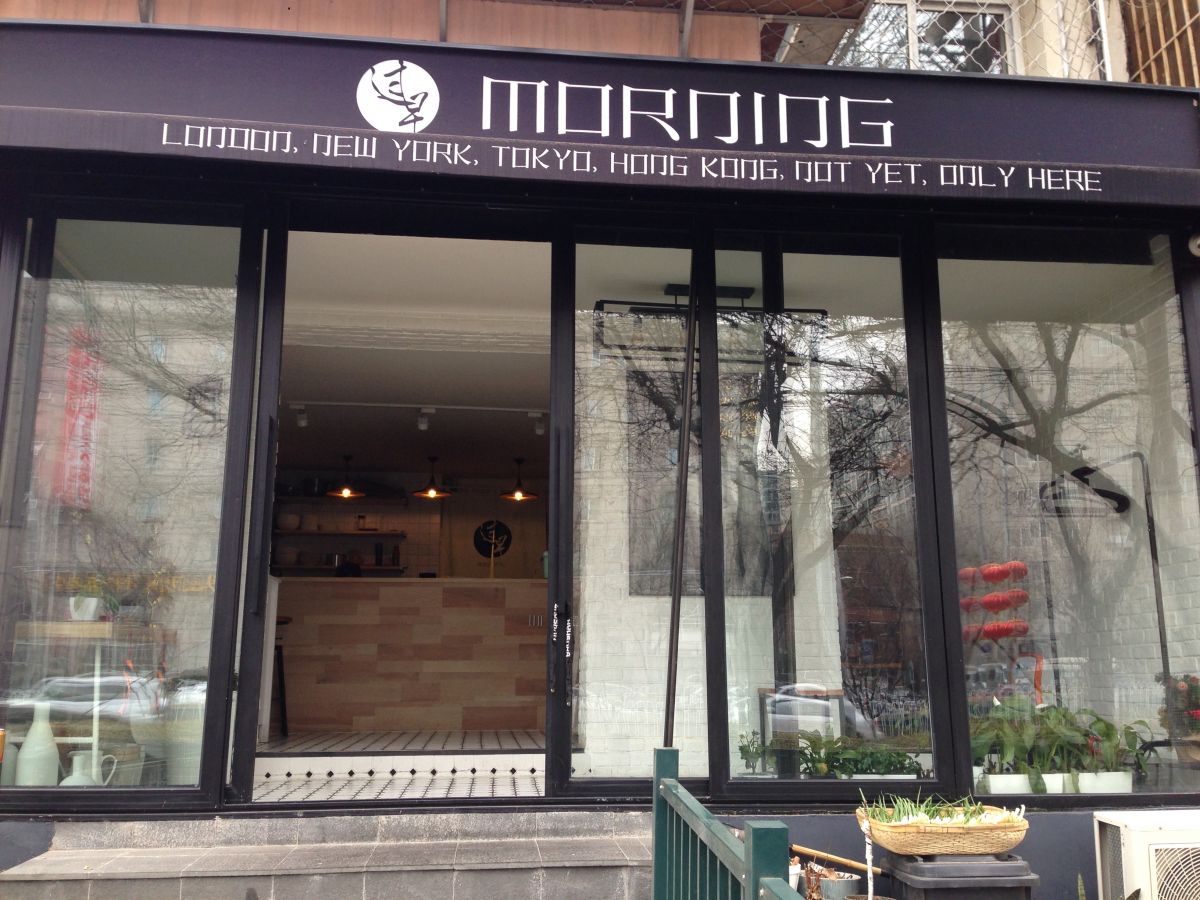
Morning
Daily, 11.30am-8.30pm. 1/F, Bldg 15, Donzhimenwai Street, Dongcheng District (200 meters west of East Lake Villas, South Gate) *Will move to 10 Chunxiu Lu as of May 1
过早: 北京市东直门外大街15号楼,东湖别墅南门向西200米,中国烟草东侧(中国烟草公司)
Photos: Tracy Wang
Related stories :
Comments
New comments are displayed first.Comments
![]() PatrickLi
Submitted by Guest on Tue, 03/08/2016 - 16:10 Permalink
PatrickLi
Submitted by Guest on Tue, 03/08/2016 - 16:10 Permalink
Re: Get Your 'Morning' Fix of Wuhan Hot and Dry Noodles in...
Where is this bei 27?
Its address is 27 Bei Sanlitun---it was named after its addresss.
You keep going north at Sanlitun Lu, and make a left when you just passed The Village's northern complex. There's a narrow alleyway and you keep going west from there. Then you'll see it on your right hand side. It's so worth of trying.
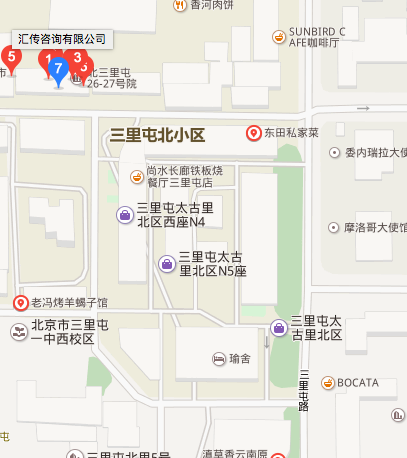
![]() admin
Submitted by Guest on Sat, 03/05/2016 - 21:13 Permalink
admin
Submitted by Guest on Sat, 03/05/2016 - 21:13 Permalink
Re: Get Your 'Morning' Fix of Wuhan Hot and Dry Noodles in...
Where is this bei 27?
![]() yidiandian
Submitted by Guest on Sat, 03/05/2016 - 10:22 Permalink
yidiandian
Submitted by Guest on Sat, 03/05/2016 - 10:22 Permalink
Re: Get Your 'Morning' Fix of Wuhan Hot and Dry Noodles in...
I agree with you that Bei 27 is a place that serves good food with tese. I had a friend who came over to China and stayed in Beijing for a week, and insisted on visiting Bei 27 for the noodles after being surprised at the first time. For Morning, I hope they could keep that way.
![]() PatrickLi
Submitted by Guest on Fri, 03/04/2016 - 10:11 Permalink
PatrickLi
Submitted by Guest on Fri, 03/04/2016 - 10:11 Permalink
Re: Get Your 'Morning' Fix of Wuhan Hot and Dry Noodles in...
I'm gonna try this one but hot and dry noodles don't sound like something that could have been made much different from place to place unless you have a secret recipe or something.
Anyways I definitly agree with the author that Bei 27 Hao is so worthy of checking out. I have hosted at least 5 groups of Chinese friends there and each single time they were awed by the taste of food there. I personally dine out at Chinese food restaurants with my family a lot in Beijing and after a while all of these restaurants taste pretty much the same. You basically rank them as good, mediocre and i'm-not-going. There are very few of them that have the power to stimulate your tastebuds, or to put it in Chinese, that have some tese 特色. Even provincial restaurants don't taste special any longer. Personally I can't say Chuanban is more sichuan than Meizhou Dongpo.
There are probably two Chinese restaurants that still do it. One is Lei Garden's dim sum and tea, and the other is Bei 27 Hao, maybe I can add Ding Tai Fung's steamed buns. While Lei Garden offers you this high-end gourmet fine dining experience, Bei 27 Hao earns my respect sipmly by its taste, and it's very cheap (average 30-40 kuai/person) comparing with the other places. In fact the dining enviornment there is very bad. You typically need to wait for 30+ minutes to get a partial table which is to be shared by a bunch of other guys, some of whom could be very annoying as you can expect. The chairs and tables aren't very comfortable. But it's all about the food.
![]() Hutong Pirate
Submitted by Guest on Fri, 03/04/2016 - 09:45 Permalink
Hutong Pirate
Submitted by Guest on Fri, 03/04/2016 - 09:45 Permalink
Re: Get Your 'Morning' Fix of Wuhan Hot and Dry Noodles in...
Awesome noodles there. Let's hope they don't close that branch when they move!
Validate your mobile phone number to post comments.

